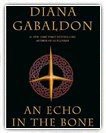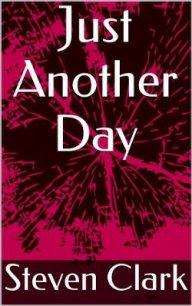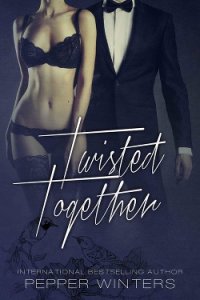Dragonfly In Amber - Gabaldon Diana (книги полные версии бесплатно без регистрации .TXT) 📗
“Hold on, cock,” he reminded himself, squinting in the rearview mirror at the turn. “You’re meant to be finding out what happened to the ones that didn’t cark it at Culloden. What does it matter how they got there, so long as they left the battle in one piece?”
But he couldn’t leave it alone. It was such an odd circumstance. Names got muddled with enormous frequency, especially in the Highlands, where half the population at any given moment seemed to be named “Alexander.” Consequently, men had customarily been known by their place-names, as well as their clan or surnames. Sometimes instead of the surnames. “Lochiel,” one of the most prominent Jacobite chieftains, was in fact Donald Cameron, of Lochiel, which distinguished him nicely from the hundreds of other Camerons named Donald.
And all the Highland men who hadn’t been named Donald or Alec had been named John. Of the three names that he’d found on the death rolls that matched Claire’s list, one was Donald Murray, one was Alexander MacKenzie Fraser, and one was John Graham Fraser. All without place-names attached; just the plain name, and the regiment to which they’d belonged. The Master of Lovat’s regiment, the Fraser regiment.
But without the place-name, he couldn’t be sure that they were the same men as the names on Claire’s list. There were at least six John Frasers on the death roll, and even that was incomplete; the English had given little attention to completeness or accuracy – most of the records had been compiled after the fact, by clan chieftains counting noses and determining who hadn’t come home. Frequently the chieftains themselves hadn’t come home, which complicated matters.
He rubbed his hand hard through his hair with frustration, as though scalp massage might stimulate his brain. And if the three names weren’t the same men, the mystery only deepened. A good half of Charles Stuart’s army had been slaughtered at Culloden. And Lovat’s men had been in the thick of it, right in the center of the battle. It was inconceivable that a group of thirty men had survived in that position without one fatality. The Master of Lovat’s men had come late to the Rising; while desertion had been rife in other regiments, who had served long enough to have some idea what they were in for, the Frasers had been remarkably loyal – and suffered in consequence.
A loud horn-blast from behind startled him out of his concentration, and he pulled to the side to let a large, annoyed lorry rumble past. Thinking and driving were not compatible activities, he decided. End up smashed against a stone wall, if he kept this up.
He sat still for a moment, pondering. His natural impulse was to go to Mrs. Thomas’s bed-and-breakfast, and tell Claire what he had found to date. The fact that this might involve basking for a few moments in the presence of Brianna Randall enhanced the appeal of this idea.
On the other hand, all his historian’s instincts cried out for more data. And he wasn’t at all sure that Claire was the person to provide it. He couldn’t imagine why she should commission him to do this project, and at the same time, interfere with its completion by giving him inaccurate information. It wasn’t sensible, and Claire Randall struck him as an eminently sensible person.
Still, there was that business with the whisky. His cheeks grew hot in memory. He was positive she’d done it on purpose – and as she didn’t really seem the sort for practical jokes, he was compelled to assume she’d done it to stop him inviting Brianna to Broch Tuarach. Did she want to keep him away from the place, or only to stop him taking Brianna there? The more he thought about the incident, the more convinced he became that Claire Randall was keeping something from her daughter, but what it was, he couldn’t imagine. Still less could he think what connection it had with him, or the project he had undertaken.
He’d give it up, were it not for two things. Brianna, and simple curiosity. He wanted to know what was going on, and he bloody well intended to find out.
He rapped his fist softly against the wheel, thinking, ignoring the rush of passing traffic. At last, decision made, he started the engine again and pulled into the road. At the next roundabout, he went three-quarters round the circle and headed for the town center of Inverness, and the railroad station.
The Flying Scotsman could have him in Edinburgh in three hours. The curator in charge of the Stuart Papers had been a close friend of the Reverend. And he had one clue to start with, puzzling as it was. The roll that had listed the names in the Master of Lovat’s regiment had shown those thirty men as being under the command of a Captain James Fraser – of Broch Tuarach. This man was the only apparent link between Broch Tuarach and the Frasers of Lovat. He wondered why James Fraser had not appeared on Claire’s list.
The sun was out; a rare event for mid-April, and Roger made the most of it by cranking down the tiny window on the driver’s side, to let the bright wind blow past his ear.
He had had to stay overnight in Edinburgh, and coming back late the next day, had been so tired from the long train ride that he had done little more than eat the hot supper Fiona insisted on fixing him before he fell into bed. But today he had risen full of renewed energy and determination, and motored down to the small village of Broch Mordha, near the site of the estate called Broch Tuarach. If her mother didn’t want Brianna Randall going to Broch Tuarach, there was nothing stopping him from having a look at the place.
He had actually found Broch Tuarach itself, or at least he assumed so; there was an enormous pile of fallen stone, surrounding the collapsed remnant of one of the ancient circular brochs, or towers, used in the distant past both for living and for defense. He had sufficient Gaelic to know that the name meant “north-facing tower,” and had wondered briefly just how a circular tower could have come by such a name.
There was a manor house and its outbuildings nearby, also in ruins, though a good deal more of it was left. An estate agent’s sign, weathered almost to illegibility, stood tacked to a stake in the dooryard. Roger stood on the slope above the house, looking around. At a glance, he could see nothing that would explain Claire’s wanting to keep her daughter from coming here.
He parked the Morris in the dooryard, and climbed out. It was a beautiful site, but very remote; it had taken him nearly forty-five minutes of careful maneuvering to get his Morris down the rutted country lane from the main highway without fracturing his oil pan.
He didn’t go into the house; it was plainly abandoned, and possibly dangerous – there would be nothing there. The name FRASER was carved into the lintel, though, and the same name adorned most of the small tombstones in what must have been the family graveyard – those that were legible. Not a great help, that, he reflected. None of these stones bore the names of men on his list. He’d have to go on along the road; according to the AA map, the village of Broch Mhorda was three miles farther on.
As he’d feared, the small village church had fallen into disuse and been knocked down years ago. Persistent knockings on doors elicited blank stares, dour looks, and finally a doubtful speculation from an aged farmer that the old parish records might have gone to the museum in Fort William, or maybe up to Inverness; there was a minister up that way who collected such rubbish.
Tired and dusty, but not yet discouraged, Roger trudged back to his car, sheltering in the lane by the village pub. This was the sort of setback that so often attended historical field research, and he was used to it. A quick pint – well, two, maybe, it was an unusually warm day – and then on to Fort William.




